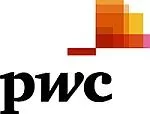Background
The World Health Organisation (WHO) recommends that travelers are vaccinated to prevent the transmission of yellow fever (YFV) with specific requirements for travelers. According to the International Health Regulations (IHR) 2005, countries may require a proof of vaccination from travelers as a condition for entry. They may also take certain measures if an arriving traveler has no yellow fever certificate (or yellow card).
Following an amendment of the IHR 2005 effective 11 July 2016, the validity of a certificate and protection offered by the vaccination changed from 10 years to the life of the traveler vaccinated. Vaccination is recommended for travelers aged 9 months and older.
Nigeria has a high risk of YFV transmission due to the environment and mosquitoes. A traveler cannot enter Nigeria or gain entry into some countries from Nigeria unless with a valid YFV certificate and must have been vaccinated at least 10 days prior to the departure date.
Relevance
On occasion, fake yellow cards are peddled to travelers at international airports. To curb this, the Federal Government of Nigeria has introduced the electronic yellow card.
The new electronic yellow card comes with some advanced security features that will make it easy to detect whether the card was obtained through the approved channel or not. Also, the machine-readable card will make it possible to store the vaccination history of the holder.
How the new automated process works:
- Travellers are to visit http://www.yellowcardnigeria .com.
- Click on "Yellow Card" application and fill in personal information.
- Click on payment button to generate Remita Retrieval Receipt (RRR) code and pay the sum of NGN 2,000 online or to the bank.
- The traveler will then take the payment receipt along with an international passport to any Port Health Services Office, to get vaccinated and obtain the electronic yellow card.
The effect on foreigners in Nigeria
Proof of vaccination is required for travelers in transit through countries with risk of yellow fever transmission, where such transit is above 12 hours. Foreigners living in Nigeria must also obtain the new "electronic yellow card".
Effective Date
The electronic yellow card will replace the old "yellow card" effective from 1 April 2019.
Takeaway
The new electronic yellow card should help curb abuse and illegal practices regarding vaccination for travelers. This should further reduce the chances that a traveler does not take the vaccination and therefore poses a risk of yellow fever incidences.
Travelers who hold the current card and were indeed vaccinated can simply exchange their card for the new one otherwise the vaccination must be done when procuring the new electronic yellow card.
Travelers into and out of Nigeria are advised to obtain the new YFV card before the deadline to avoid travel disruptions. They should also check for other requirements such as polio vaccination that may be required when visiting certain countries.
The content of this article is intended to provide a general guide to the subject matter. Specialist advice should be sought about your specific circumstances.


